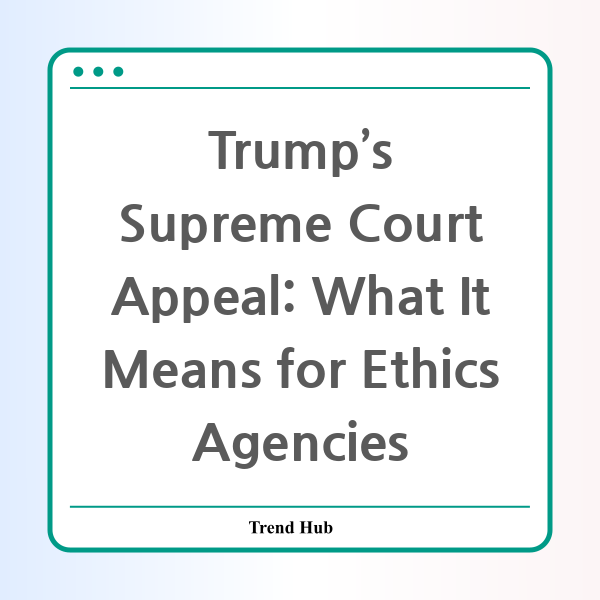* This website participates in the Amazon Affiliate Program and earns from qualifying purchases.

As President Donald Trump gears up to appeal to the Supreme Court regarding the firing of Hampton Dellinger, the head of the U.S. Office of Special Counsel, questions of ethical governance and the power of the presidency are back in the spotlight. This case, known as Bessent v. Dellinger, hinges on a significant constitutional debate: Can a president fire the head of an independent agency without cause, or are there legally mandated protections in place to prevent political interference?
The essence of the dispute revolves around Dellinger’s abrupt dismissal, which came without the necessary cause required by law. The Office of Special Counsel is designed to protect whistleblowers from retaliation, ensuring that federal employees can report misconduct without fear of being fired. This independence was intended to shield the office from political pressures, a principle that could be undermined if the Supreme Court sides with Trump.
Trump's appeal arrives at a critical time as he looks to consolidate executive power during his second term. His administration has demonstrated a pattern of dismissing various officials who have challenged him, which raises the stakes for many other independent agencies beyond just Dellinger’s position. The Supreme Court’s decision has the potential to redefine the scope of presidential power over independent agencies, impacting bodies such as the Federal Trade Commission and the Federal Reserve.
Supporters of Trump argue that he was elected to disrupt the status quo within the federal government. They maintain that as the head of the executive branch, he should have the authority to dismiss officials at will. Sarah Harris, the Acting Solicitor General, emphasized this point in her emergency appeal to the justices, asserting that allowing lower courts to dictate employment terms breaches the president’s executive power.
On the other hand, Dellinger’s legal team argues that the law is clear: he can only be removed for inefficiency, neglect of duty, or malfeasance in office. His dismissal by email, without explicit grounds, sets a concerning precedent in terms of legal standards surrounding independent agencies.
This case also taps into a larger narrative that has unfolded over recent years, where presidential power and executive actions have frequently clashed with the judicial system. Trump's previous efforts to reshape the federal workforce have already resulted in thousands of job terminations across various departments. As this legal saga unfolds, many are left to wonder how it will affect the future of independent agencies and the grounds upon which federal employees can be retained or dismissed.
As we await the Supreme Court's decision, the implications of their ruling will be closely monitored, not just for Dellinger’s future but for federal governance as a whole. If the court aligns with Trump, it could pave the way for more executive interference in independent agencies, fundamentally altering the landscape of federal oversight and accountability.
In conclusion, the outcome of Trump’s appeal to the Supreme Court will resonate far beyond the immediate parties involved. It will serve as a benchmark for how the balance of power between the presidency and independent regulatory bodies is structured in the United States.
* This website participates in the Amazon Affiliate Program and earns from qualifying purchases.